Talk with our local travel specialist who can help organize your trip.
60 Tips for a Successful Trek to Everest Base Camp
Trekking to Everest Base Camp is a lifetime journey for most trekkers which is a challenging yet unforgettable experience. Standing against the tallest mountain in the world, Mt. Everest (8848m/29029ft) is one of the exciting adventures one can possibly dream of. Walking on the trails full of stunning and breathtaking views of the Himalayan vistas, local Sherpa village and glaciers can be tempting for anyone. You will face the mighty Everest rising above you in a clear blue sky.
Stepping on one of the seven natural world wonders, Everest Base Camp has natural and cultural beauty at its peak. As you walk in the trails, you will explore the local and ethnic Sherpa village with prayer flags, get to know the Nepalese culture in the higher altitude, see the Khumbu Ice Fall before you step at the foot of Mt Everest. If you are considering the Everest Base Camp trek (5364m/17594ft), then make sure you follow the instructions given. The trek is challenging but with the right guidance and tips, you can overcome the obstacles and enjoy the beauty of the trek.
There can be a lot of uncertainties about the trek. But we have worked hard to provide you the best and the right information. After years of providing quality service to our customers, we have gathered the necessary information that will serve you right. We have listed the best 60 tips for you if you are planning to trek to Everest Base Camp. These tips will save your time and effort and let you enjoy every moment of the trek. If you have any suggestions or tips that you think we have missed out on, please contact us via the given email and the number.
Table of Content
- Be Mentally Prepared
- Choose Professional Trekking Company
- Know Your Expectation From All-Inclusive Packages
- Use Local Agency And Guide
- Plan Your Budget Accordingly
- Understand The Tea House Accommodation
- Eat Hygienic Food, Avoid Ordering Meat
- Make Sure Eat Enough Food At Every Meal
- Stay Within Luggage Weight Limits
- Pick Best Trekking Season
- Be Open With Your Guides About How You’re Feeling
- Prepare For Flight Delays
- Prepare For Flight Diversion To Ramechhap
- Select Right Gear For Ebc Trek
- Make Sure You Have Adequate Travel Health Insurance
- Stay Hydrated
- Avoid To Drink Tap Water
- Always Bring Cash
- Keep Some Chocolates And Dry Snacks
- Do Not Hide Your Health Problem
- Always Check Your Gear
- Bring Water Bottle (Metal) Thermos And Tea
- Understand Bathroom Expectations
- Drink Bottled/Purified Water And Avoid Ice Cubes
- Plan Contingency Days For Trekking
- Always Carry Nepalese Currency While Trekking
- Know Your Luggage Limits
- Have A Comfortable Back-Pack
- Shower Early
- Bring First Aid Kits
- Use Hand Sanitizer
- Consult Your Doctor Take Vaccination Before Going To Nepal
- Give Priority For Acclimatization
- Bring Earplugs
- Know Your Headaches
- Prepare For Cold And Rain
- Take Care With Batteries And Backups
- Always Trek Slowly And Steadily
- Bring Camera/Mobile And Chargers
- Remember Sun Protection
- Consider Alternate Routes
- Learn About The Local Communities
- Be Alert About Ams/Altitude Sickness
- Manage Your Garbage By Yourselves
- Do Not Trek At Night
- Respect Local Culture & Traditions
- Bring Some Books And Playing Card
- Be Cautious Of Yaks And Donkey
- Buy Gear In Kathmandu
- Keep Connected With People
- Tipping The Porter And Guide On EBC
- Give Spaces To The Porters, Donkeys And Yaks
- Crossing Suspension Bridges
- Do Not Harm Any Wild Lives
- Trekking Maps
- Do Not Consume Alcohol
- Be Clean And Neat
- Get Enough Sleep
- Eat Hygienic Food
- Lukla Flight
- Conclusion
1. Be Mentally Prepared
Trek to Everest Base Camp is one of the popular treks which are moderate to difficult. It would help if you had advance physical fitness along with strong mental capabilities. It would help if you built up your mental health and strength to the fullest before you plan your trek to Everest Base Camp. You should be clear and understand why you are planning the trek and what it is to you. Knowing the purpose of what you are doing will help you to focus on the trek. Make sure you plan thoroughly and learn to have patience.
2. Choose Professional Trekking Company
You should invest more time in choosing the best trekking company that matches your expectation for the trek. Trekking with the right company can clear out most of the hurdles in the trek. While you trek to Everest Base Camp, you will face two problems-weather and altitude. Reputed trekking company has good network with the airport and can assist you during flight delays. Also, acclimatizing to the environment is extremely important as you go in a higher altitude. An experienced trek guide will help you adjust to the environment by taking it slow and overcome the symptoms. All in all, in case of emergencies, the right trekking company will ensure you are safe and healthy at the end of the trek.
3. Know Your Expectation From All-Inclusive Packages
Planning for the Everest Base Camp trek can be hectic and confusing as you have different options to choose from. It can be very difficult to communicate prior for the accommodation facilities if you are not a local. If you are an independent traveler, you would need to do everything from hotel booking to food all by yourself. If you plan to book the trek via a trekking company, they will offer you an overall package. Thus, many trekkers choose all-inclusive packages where everything is planned in a package and you do not have to worry about food or accommodations.
The all-inclusive package usually includes accommodation in Kathmandu, roundtrip airfare to Lukla/Ramecchap, tea house accommodation, meals, vehicles, Permits, guides and porters and local and government taxes.
However, it will not include accommodation for extra days, last minute helicopter transportation, snacks, and tips for the guides/porters and travel insurance.
4. Use Local Agency And Guide

You can find numerous international and local trekking agencies that will offer you a trip to Nepal. However, most of the international agency will charge you extra or higher price for the same package. Local agencies will offer more services and right information along with the experienced guides and porters in a cheaper rate.
5. Plan Your Budget Accordingly
Trekking to the Everest Base Camp can be affordable when you trek for around 14-21 days. This trek is suitable for budget trekkers as well. The main expense of your trip is the round airfare and the trekking team. With the facilities, the trip can cost you around $3000-$4250 per person. The cost is broken into:
- $1000-$1500- Round airfare
- $1400-$2000 Trekking team & all-inclusive trek accommodations
- $150-$200 Travel Insurance
- $200-$300 Extra Cash
- $140-$200 Guide & porter tips
These costs are based upon a standard itinerary. If you choose to extend the itinerary for a few days or add new destinations, the cost shall vary. Also, the packages will have a certain set of benefits for your transportation, accommodation and food and if you add more benefits or services, it will render charges.
6. Understand The Tea House Accommodation
You will find tea house accommodation in the trek to Everest Base Camp. The accommodation facilities are clean with twin sharing bedrooms. It might cost you $ 5 per head or $10 – $30 if you stay at the attached bathroom bedroom. You can also find luxury hotels where it will cost you $150-$225 for twin sharing. All in all, you will have a comfortable room to sleep at and interact with the locals.
7. Eat Hygienic Food, Avoid Ordering Meat
It is suggested to avoid meat in a higher altitude. The locals forbid animal eating meaning you will be offered dry meat flown into Lukla then carried to the tea house. The meat won’t be fresh and you might have health problems after the intake. Also, make sure you eat vegetables and take enough food as it is used after hours of trekking.
8. Make Sure Eat Enough Food At Every Meal
Make sure you have three meals a day and have a hot drink with each meal during the trek. You can find varieties on the menu but most people order Dal Bhaat, typical Nepali food. It consists of steamed rice, lentil soup, vegetable curries, and pickle. Ensure you have enough food and do not consider dieting while you are on the trek.
9. Stay Within Luggage Weight Limits
While you plan for the trek, it is obvious you want to carry everything that you might want during the trek. but over-packing can make the trek difficult. Thus, it is recommended to only carry essentials in your day pack bag and keep the rest of the stuff in the duffel bag carried by the porters. The day pack must have your valuables, rain gears, water, gadgets, snacks, jacket and sunblock.
10. Pick Best Trekking Season

The most suitable season to trek to Everest Base Camp is during spring (March to May) and autumn (September to November). These seasons offer clear blue sky with a moderate temperature that lets you explore the region. This is also the time when you find climbers taking on an expedition to Mt Everest.
Ensure you avoid seasons like summer (June to August) where you will find the trails wet and uncomfortable due to the rain. Also, in winter (December to February), the weather gets cold and tea houses may close in the higher altitude which makes it difficult to find a good accommodation facility.
11. Be Open With Your Guides About How You’re Feeling
Your guides are your friends during the trek. So, do not hide anything from the guide. Trekking can be equally enjoyable and exhausting. You may be sensitive to altitude sickness and experience symptoms. Do not hide out on your symptoms and let your guide know about your health issues. Taking precautions in time can be extremely helpful at these early stages.
12. Prepare For Flight Delays
The weather condition in the Himalayas is erratic which causes the flight to Lukla to delay. Mostly, the professional trekking company ensures to do the trip smoothly and inform about the weather beforehand. Also, the airports in Nepal are still developing and the communication between airports is unsystematic. It is common for flights to delay for an hour, but the delay may be longer during extreme weather conditions. Ensure you plan prior to these delays and schedule an extra time and carry snacks and books to pass the time.
13. Prepare For Flight Diversion To Ramechhap
Lukla airport is the main destination for the flights to land from Kathmandu, but in the peak season (March to May and September to November), due to high air traffic in the Kathmandu airport, the flight is diverted to Ramecchap. You will be informed of the diversion ahead by your trekking company so that you can be prepared for the 4-6 hours’ drive or flight from Kathmandu. Read more What You Should Know About Lukla Flights?
14. Select Right Gear For Ebc Trek
The right gear is your companion throughout the trek. Thus, make sure you invest much time and plan to buy and use the gear prior to your trek. An ill-fitting pack can create hurdles in the trek. choose a good bag pack to carry your gears and practice carrying it as well. Ensure the boots do not pinch or chafe when you walk. You can buy the gears in Kathmandu at a cheaper rate. You can learn more about our equipment list.
15. Make Sure You Have Adequate Travel Health Insurance

Taking adequate travel health insurance is important before you travel to Nepal for the trek. You cannot sign the travel insurance in Nepal thus you have to do it online. Before signing, ensure the insurance covers lost baggage, cancellation, travel health, death, accidents, air ambulance, and many more. Make sure you have insurance that covers at the altitude of 6000m with helicopter evacuation.
16. Stay Hydrated
Staying hydrated during the trek to Everest Base Camp is important. Even though you will be trekking in a cold temperature, hiking on higher altitude can take a toll on your body. Keeping your body hydrated keeps the energy up and helps with altitude sickness. Make sure you drink 2-4 liters of water each day. Even if you are not in the mood for drinking water, make sure you keep taking a sip while you are trekking. If you are not a water drinker, take in tea or flavors or electrolyte tablets.
17. Avoid To Drink Tap Water
The tap water in Nepal may not be the best choice for you as the water quality is not the best. Make sure you avoid drinking from the Tap water. Always carry a water purification tablets to use when in the tap water when you are out of boiled water.
18. Always Bring Cash
Bringing cash in the Everest Base Camp trek can be extremely useful. Even if you are a solo traveler, then you will need extra money for food, accommodation, permits and other facilities. Also, there are no ATMs in the higher altitude. Carrying cash can help you if you cannot walk or hire horses/porter or during evacuation. Having enough cash can boost up your confidence in anywhere you go.
Featured Trips
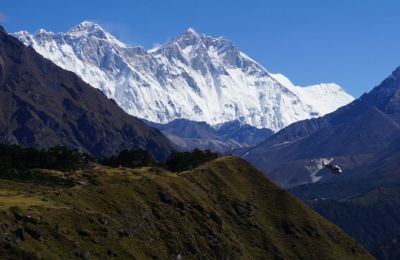
Everest Base Camp Trek - 14 days
Looking for an exciting Himalayan experience? Join us on our 14 day Everest Base Camp Trek - get ready to be stunned by breathtaking views and discover magical Nepalese cultures!
Inquire Now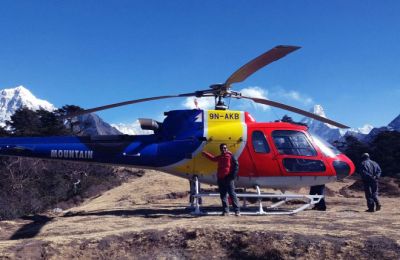
Everest Base Camp Luxury Trek with Helicopter Flight - 11 days
Take an extraordinary journey and explore majestic Mount Everest with a once-in-a-lifetime Everest Base Camp Trek. Enjoy the sights of local Sherpa culture along the way before soaring back down to Kathmandu in a helicopter return.
Inquire NowWhere to travel next?
Get help from our travel specialists for holiday ideas that matches your interests.
19. Keep Some Chocolates And Dry Snacks
If you are taking in all-inclusive package, your meals are covered with it. However, you have to carry your own snacks for the trail. Trekking can be exhausting and you will need to fuel up the body with food. Sometime, you might not want to eat due to the tiredness and cold but it is highly suggested to take in as much food. Ensure your snacks have protein and carbs. Keep some chocolates and dry snacks to much in while you walk on the trail.
20. Do Not Hide Your Health Problem
Stepping on the foot of the mighty Mount Everest is a dream-come-true for most trekkers. The trek is challenging meaning you have to face different hurdles on your way. The main problem is the altitude sickness. Many people tend to hide the symptoms of the altitude sickness which becomes hard to treat later. Make sure you do not hide your health issues and let your guide know.
21. Always Check Your Gear

Before you start your trekking, make sure you check your gear or use it so that you are comfortable with your gears. The gear you use should be planned prior to the trek. Choose a good, comfortable pair of hiking boot which does not pinch while you walk. Ensure that you choose a comfortable daypack that is not heavy. Practice carrying the bags so that you get comfortable with all the gadgets.
22. Bring Water Bottle (Metal) Thermos And Tea
Bringing water bottles, thermos can be very useful as you have to take in hot water while you in the trek to stay hydrated and keep your body warm. Also, bring tea bags that will save up your cost instead of ordering a tea in the shops or tea houses.
23. Understand Bathroom Expectations
The tea houses in the higher altitude have clean and comfortable places to stay. However, the bathrooms are not quite as expected. It won’t be as clean and you might have to squat. It may require you to manually flush i.e., pouring water from the bucket. Make sure you carry enough toilet papers, wipes and hand sanitizers in case of emergencies.
24. Drink Bottled/Purified Water And Avoid Ice Cubes
Drinking clean water is advisable as you might get sick with the tap water available during the trek. you can buy bottled water which will cost you $1 to $ 4 per liter. It is expensive and is not eco-friendly as well. The best thing you can do is fill your bottles with the boiled water available at the tea houses. Also, make sure you avoid ice cubes and bring in purifying tablets.
25. Plan Contingency Days For Trekking
If you want to add a few more days to your trip, do it at the end of the trek but not initially. The weather is erratic and unpredictable which holds up flights to Kathmandu from Lukla. If your flight is delayed, you can spend extra time exploring the places and interacting with the locals.
26. Always Carry Nepalese Currency While Trekking
Carrying Nepalese currency during any trek is important. If your trekking company offers all-inclusive packages, you won’t have a lot of needs to purchase in the trek. But you might have cravings for chips or chocolate or might forget to buy important stuff prior to the trek. That is when you will need cash to buy around the shops in the village. There is no ATMs in a higher altitude, thus carrying adequate is important. You can exchange your currency in money exchange or airports.
27. Know Your Luggage Limits
After you book the Everest Base Camp trek, they will send you packing lists and inform you about the pack limits. The flight to Lukla has weight restrictions- your main pack can be 10kg/22 lbs. Your carry on can be 5kg/11lbs. The main pack is the duffle bag consisting of a sleeping bag, clothes, toiletries etc. which will be carried by the porters. Your carry-on has your daypack consisting of cameras, valuables, sunscreen, snacks, and so on. If you have extra luggage, you can store it in Kathmandu at your hotels.
28. Have A Comfortable Back-Pack

You will need a big and a small bag for trekking. If you book with your trekking agencies, they will provide you with duffle bags for trekking. It can be carried by the porters for which you have to pay them extra. If you are an independent trekker, make sure you have a comfortable backpack so that you can carry and trek on the trails. Make sure you have a small bag before coming to Nepal as it will be easy to carry in each place. It is suggested not to carry a suitcase while you are trekking. A trekking bag is compulsory so that you can easily carry it around the trek.
29. Shower Early
The water system in the tea houses has solar panels meaning you have better chances of using the hot water if you shower early instead of waiting for it at the end of the day. Many people bring wet wipes to use instead of showers as the temperature gets quite cold in the tea houses.
30. Bring First Aid Kits
While you are traveling, injuries and accidents are common along with sickness too. Ensure you have all the proper medication, Band-Aids in the first aid kit while doing the Everest Base Camp trek. Your health is the main concern so take everything that you might think is medically important for you.
31. Use Hand Sanitizer
Hand sanitizers is important not only during the treks but in everyday lives. While you trek at a higher altitude, you might not have proper hand washes and water to clean your hands. This might result in sickness, stomachache, and diarrhea and so on. So, make sure you have hand sanitizers to keep your hands clean.
32. Consult Your Doctor Take Vaccination Before Going To Nepal
It is recommended to take in tetanus and rabies vaccination before arriving in Nepal for the Everest Base Camp trek. You will be walking in the national park; thus, it is advisable to use malaria vaccination in the summer. Also, if you have any health problems, please consult with your doctor as you have to walk for hours in the thin oxygen level.
33. Give Priority For Acclimatization
Acclimatization is important while you trek to the higher altitude. Proper acclimatization helps you to adjust to the environment. Acute mountain sickness is a major obstacle in the trek. Most people get the first symptom of altitude sickness above 2500m. Due to the thin oxygen level, you might get dizzy and get headaches. But with proper acclimatization, you won’t have any problem with adjusting to the environment.
34. Bring Earplugs

The tea houses are comfortable for you to sleep in after long hours of walking. However, the walls between the rooms are thin and you can hear the noise easily. If you are a light sleeper, make sure you carry earplugs for better sleep.
35. Know Your Headaches
While you are trekking in a higher altitude, you may experience altitude sickness. A headache can be the first sign of it. Small and mild headaches are common because of the walking and cold environment. However, it can get extreme so you should let your guide know about your health situation. Do not pretend to be okay and avoid such early symptoms. Altitude sickness can be reversed easily when diagnosed early but becomes serious if it is progressive.
36. Prepare For Cold And Rain
As mentioned, the weather condition in the Himalayas is unpredictable. The temperature in the higher altitude is always cold even if you trek in the summer. The erratic weather condition makes it hard to predict the actual weather and climate condition. Thus, make sure you are prepared with the cold temperature and bring enough warm clothes. Also, bring rain gear such as raincoats and umbrellas to use during the
37. Take Care With Batteries And Backups
With amazing views and sceneries at every step of the Everest Base Camp, you will be tempted to click pictures at every step of the journey. So, you will have to charge your cellphones, cameras and other gadgets. You will be charged between $5-$10 USD/hour. Batteries drain quickly in a colder temperature so you have to charge your batteries frequently. Many trekkers put their devices in their sleeping bags to keep them during the night.
38. Always Trek Slowly And Steadily
Walking slow and steady is a must while you are trekking in Nepal. As you higher in altitude, it becomes difficult to breathe due to the thin oxygen levels. Also, walking in a rush can cause injuries as the trail gets slippery. Trekking slowly helps avoid altitude sickness and dehydration and lets you explore the Everest region's stunning view.
39. Bring Camera/Mobile And Chargers
There are electricity facilities in Everest Base Trek thus you can bring your camera, mobile and other necessary gadgets. You might get tempted to capture all the details of the picture and show it to your friends and families back home.
40. Remember Sun Protection
Even though you might be trekking in colder weather, you are prone to sunburn as you are in a higher altitude. The dry air and sun rays can cause sunburn resulting in redness and swelling. Make sure you use sun protection creams, hats or scarves to avoid any severe damage to the skin.
41. Consider Alternate Routes
If you have extra days on your trek, make sure you visit the Gokyo Valley. The Gokyo trek is lesser-traveled hidden in the valley of Khumbu region. You can enjoy the traditional village, beautiful tranquil lake and ice trails of Cho La Pass and Kala Patthar where you can get a closer view of Everest and the landscape. The popular route is a 14 day Everest Base Camp Trekking, and three days longer than the Everest Base Camp, if you take the Everest Base Camp trek with Gokyo Lake. If you want to take on a more challenging trek, you can take on the Everest three high passes trek.
42. Learn About The Local Communities
Trekking to the Everest Base Camp is full of cultural and natural beauty. There are local ethnic groups with their own culture and values. The guides will show you up to the mountains and help to explain more about the local communities. Make sure you learn about the local communities so that you do not offend the locals.
43. Be Alert About Ams/Altitude Sickness

Before you plan on any trek in the higher altitude, make sure you learn about Altitude sickness in detail. Sometimes, ignoring the symptom of altitude sickness can cause death or severe problem. While you trek at the higher altitude, the air pressure and the oxygen level drops. If you do not acclimatize properly, your body will experience problems and difficulties. The signs and symptoms of altitude sickness are:
- Weakness or muscle fatigue
- Irritability
- Difficult to breath
- Insomnia
- Loss of appetite
- Exhaustion
- Headache
- Dizziness
- Nausea & vomiting
44. Manage Your Garbage By Yourselves
There is a strict law for managing garbage at the Everest Base Camp now. Make sure you do not throw your waste in the trails and carry it with you and dispose at a proper dustbin or in the tea house. Managing waste and keeping the surroundings clean can make the journey special.
Featured Trips
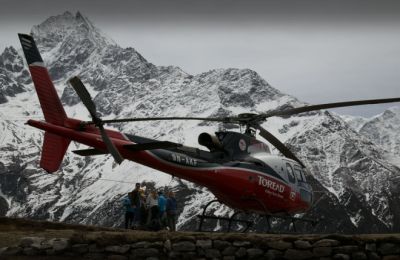
Everest Base Camp Gokyo Lakes Helicopter Trek - 8 days
Enjoy Everest Trek like never before with Everest Base Camp Gokyo Lakes with helicopter returns 8 days. Trek to EBC and spectacular flight over Gokyo Valley.
Inquire Now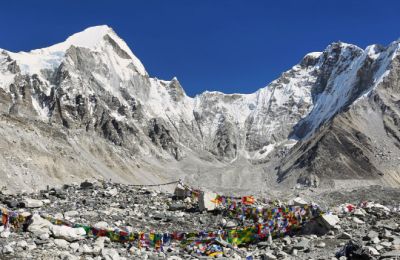
Everest Base Camp Short Trek Heli Return to Lukla - 12 days
Everest Base Camp Short Trek takes you across the highest trekking trail on Earth. Fulfill your lifelong dream to Trek Everest Base Camp and return from Kalapatther to Lukla.
Inquire NowWhere to travel next?
Get help from our travel specialists for holiday ideas that matches your interests.
45. Do Not Trek At Night
Trekking at night should be avoided in the Everest Base Camp trek. Remember that you are trekking inside the national park which has varied wildlife and can be dangerous. Also, the paths can get slippery which might cause injuries. The temperature drops at higher altitudes and it gets very cold. With low light, you might not see the path which might cause severe accidents.
46. Respect Local Culture & Traditions
Culture and traditions must be respected while you are traveling to Nepal. Nepal is a small country with more than 100 ethnicities and various cultures, traditions and values. Revealing clothes, public display of affection can be considered offensive. Also, maintain silence and discipline when you enter the temples and monasteries as they are sacred sites.
47. Bring Some Books And Playing Card
You can bring some books or play cards with other trekkers to kill your free time. Books can be great to help you sleep and even calm your mind and soul. Make sure you do not carry more heavy books as it will be difficult to carry. You won’t have any modern entertainment at the tea house or use the internet, so you can bring card games and pass the time whenever you feel bored.
48. Be Cautious Of Yaks And Donkey

From the lower region to Namche Bazaar, you will find donkeys and yaks carrying bags and foods to a higher altitude. This makes the region to Gorakshep busy so make sure you take the safe path while the animals pass. The animals may sometimes push you down or can attack you. Ensure you are at a safe distance.
49. Buy Gear In Kathmandu
You can find every type of outdoor gear for your trek in Kathmandu. There are hundreds of shops filled in the alley of Thamel where you can find quality products. It is reasonable to buy the non-essential items which won’t affect the trip. You can also rent trekking equipment that requires specific performance such as hiking boots, sleeping bags, tents, and so on.
50. Keep Connected With People
You will have a mobile network and internet facilities in the lower altitude. But as you go higher, there might not be any source of communication. You can get a Nepali sim card to stay connected with your friends and families but there might be a network problem. So make sure you provide your travel agency with the number of your friends and families so that they can send your message if you are unavailable.
51. Tipping The Porter And Guide On EBC
There are many porters and guide working for tourists to ensure you enjoy the trek without any problems. They tend to carry your heavy bags without any questions. They work hard day and night even on much a higher altitude. So, you can tip them at the end of the trip and thank them for the service.
52. Give Spaces To The Porters, Donkeys And Yaks
As mentioned, you will see lots of porters, yaks and donkeys on your way carrying heavy loads. While they are crossing or passing through the trail, make sure you give them enough space to walk. Usually, the animals look down while carrying the goods so you should try to avoid a collision.
53. Crossing Suspension Bridges

You will cross several suspension bridges as you climb up to the Everest Base Camp. These bridges are high and scary as it gets shaky. Make sure you are careful while you cross the bridges and let the animals pass first to avoid a collision in the narrow road.
54. Do Not Harm Any Wild Lives
The Everest Base Camp trek takes you through the Sagarmatha National Park where you will see varied faunas. You may encounter them but do not try to catch or kill any animals as it is illegal to do so. You will find Himalayan Thar, Danphe birds close to the humans. Make sure you are not intimated to catch them.
55. Trekking Maps
The trails may not be clear and asking locals can be difficult if you do not know the language. So, make sure you carry the maps and follow the routes. If you are an independent trekker, you must have a trekking map. If you are with a trekking company, you will be taken in a group but carrying a map will guide you if in case you spilled from the group.
56. Do Not Consume Alcohol
Drinking alcohol can be a worse problem in a higher altitude as it may harm your body to the core. When you drink, you feel tired and exhausted which may elevate acute mountain sickness. Make sure you have plenty of healthy drinks or tea rather than alcohol in a higher altitude.
57. Be Clean And Neat
While you are on the trek, you may want to be clean and fresh every day. However, due to cold climate, most people do not want to bath. Even though you will get hot water, you should be bath every day as it might make you sick and ruin the trek. You can use wet wipes instead of bathing.
58. Get Enough Sleep
The cold weather, high altitude, and new environment can cause fear of the unknown and hinder your sleep cycle. If you do not get sleep properly, you may be tired and sick during the trek. Nevertheless, do not use any sleeping tablets or pills because it can be dangerous. Trying to read some books and getting rest to ensure you are fit for the trek.
59. Eat Hygienic Food
During the trek, you can get typical Nepali, Indian and Western Food. Some of the food can be new to your stomach and may not be easy to digest. It is also better not to consume meat items at a higher altitude as the meat might not be fresh. They bring the meat from Kathmandu and are carried by the porters without refrigerating to the higher altitude. Make sure you do not consume meat or any dairy items unless it is homemade.
60. Lukla Flight

Lukla Flight is one of the most enthralling flights to experience in the world. The erratic weather and geography make the airport exciting and challenging at the same time. Only small aircraft to Lukla is used to fly to the airport due to which you feel big turbulence. The flights are not boarded due to the bad weather. There are chances of strong winds near Taksindo and Lamjura mountains making the flight experience turbulence.
Conclusion
We hope these 60 best tips are useful to you and help you get the best of Everest Base Camp Trek. If you have more questions or confusion related to the trek you can leave your queries in the comments or contact us directly. We wish you the best and have the greatest adventure ahead.
- Written by: Naba Raj Amgai
Updated: Feb, 2, 2021



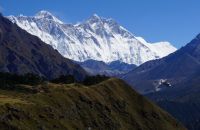
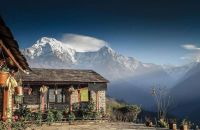
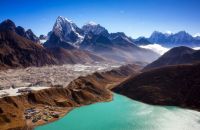
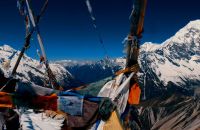
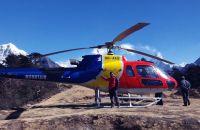








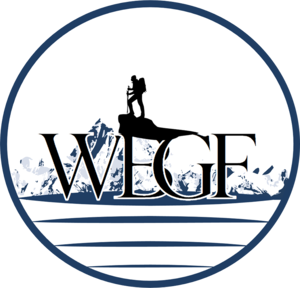







Recent Comments